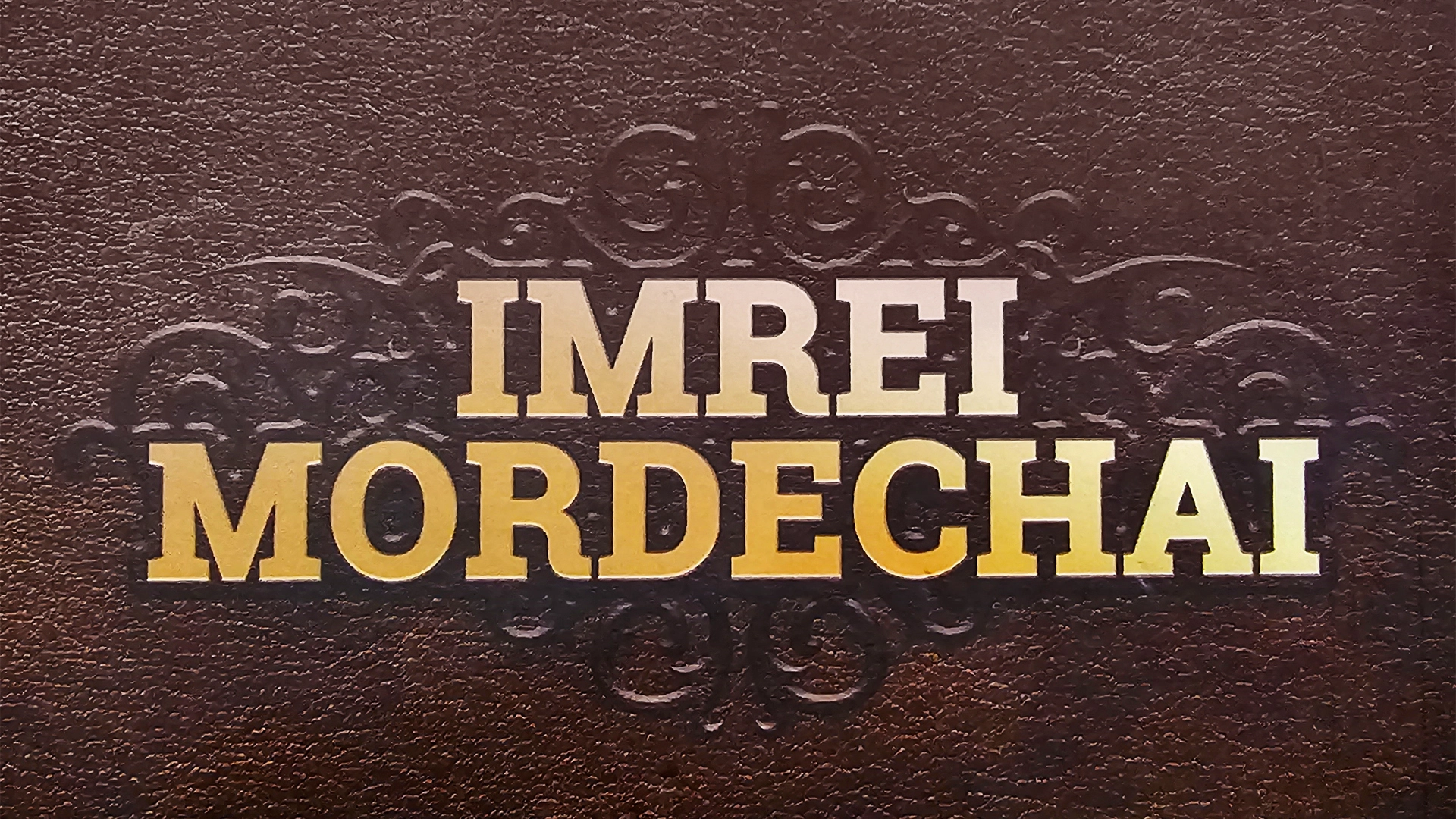November 25th, 2024 / 24th of Cheshvan 5785

In Parshas Vayishlach [the Torah portion of “And he sent”], we read the account of Yaakov [Jacob] Avinu’s [our Forefather’s] experiences with Lavan Ha’arami [Laban the Aramean]. After Yaakov spent twenty years carefully shepherding Lavan’s sheep, Hashem [God] appears to him and instructs him to return home to Eretz Canaan [the Land of Canaan]. Yaakov convinces his wives to agree, and they set off secretly, while Lavan is away. When Lavan hears of their escape, he chases after them, enraged, and catches up to them with plans of revenge. Let us analyze their meeting and learn an important rule about dealing with emotionally charged situations.
Lavan opens his arguments to Yaakov in all innocence and piety: “Why did you run away without telling me? I would have sent you off with joy, songs, drum, and lyre!” (Midrash Pesikta Zutresa [a Midrashic commentary] and Sechel Tov [a medieval Torah commentary] say that Lavan used four expressions of celebration parallel to the four weddings Yaakov made. He meant to say, I would have made a party including all your wives; a complete affair.) “You didn’t even let me kiss my offspring!” (Bereishis / Genesis 31:27-28). Lavan was presenting himself as a wonderful man, who simply wants to gladden other people’s hearts, especially those of his own family. He “forgot” his years of treachery and lies toward Yaakov and neglect in supporting his own daughters and pretended he was a tzaddik [righteous person].
Lavan then accused Yaakov of stealing his idols, so Yaakov allowed him to search through all his possessions, and he found nothing. We can imagine Yaakov’s feelings of hurt and injustice—and then it just got worse. Yaakov lucidly and logically argues his innocence and uprightness, summing up his decades of loyal service to Lavan:
“You have searched all my things—if you found anything of yours, bring it out and we will clarify it. These twenty years I was with you, did your sheep ever miscarry? I paid for any animal killed by beasts, or stolen whether by day or night! I suffered heat in the days and frost at nights; I pushed away sleep from my eyes… And you changed my wages ten times; if my G-d hadn’t helped me, I would have left with nothing to my name!” (Bereishis 31:37-42).
But Lavan isn’t impressed. “The daughters are mine. The sheep are mine—everything you see is mine!” (Ibid. 43). He negated all of Yaakov’s vindications with this pronouncement—who cares if you worked hard, it’s all only because of me! Of course, you suffered—that’s your job! You deserve nothing! We see this attitude among some businessmen; they think they own everything and everybody they employ. When the sages state that “One must say: ‘For me the world was created,’” (Sanhedrin 37a [Talmud, Tractate Sanhedrin]), they take this to mean that they are the center of all existence and so can do what they want with their workers.
We can’t even imagine the emotional storm Yaakov Avinu [our Forefather Jacob] must be experiencing by this point! After serving Lavan all these years with such dedication, avoiding theft to the highest degree; a level of work that is beyond our conception. And still Lavan cheated him out of his wages again and again—and now Lavan has the chutzpa [audacity] to deny it all. To claim that Yaakov has no rights to anything! Lavan displayed here the very depths of despicableness and deceit.
Astonishingly enough, when Lavan next suggests they make a peace treaty, Yaakov immediately agrees. Our forefather himself gathers stones to make a symbolic peace pile on which they share a meal together. The Ramban explains that the practice of people entering a covenant was to partake of a shared meal together, to show love and brotherhood. Yaakov and Lavan feasted on a sacrificed animal and bread; a large meal. Yaakov thus acted toward Lavan as if they were best friends, as though nothing negative had happened between them.
This episode is quite bewildering. Certainly, Yaakov Avinu felt tremendous anguish and anger over Lavan’s continued injustices, as he himself stated; Hashem had told him to leave his vile company, as the Shechina [Divine Presence] cannot rest among wicked men. And yet, Yaakov ignores all of Lavan’s faults — lies, thievery, cheating — and his own negative feelings, and pretends he is happy with him. Isn’t Yaakov the paradigm of honesty, as the verse says, “Grant truth to Yaakov” (Micha 7:20)? Where is Yaakov’s truthfulness? How could he make peace with him and break bread together?
We must conclude that the trait of emess [truthfulness] is different than we think. It does not mean one should simply act upon his true feelings, but that he should conduct himself according to what is the correct thing to do. Indeed, if a person just follows his emotions, he will lose his ability to judge and evaluate his actions.
Yaakov Avinu certainly felt strong negative emotions towards Lavan — especially since Yaakov was so careful with honesty and Lavan did the opposite — and based on that he should have refused to make up with him. However, his refined midda [characteristic] of emess enabled him to overcome his emotions and make the rational decision that making peace was the right thing to do, and that is what he did.
Imagine what would have happened if Yaakov Avinu had not developed this virtue and reacted with his instinctive feelings!
And even if he would have realized what must be done and consented to Lavan, most people in such a situation would clearly show how begrudgingly they are agreeing. But this was not the case with our forefather. Yaakov had perfected himself to such a degree that the knowledge of what is right overpowered his natural emotions. This recognition imbued him with the inner desire to make peace with Lavan, no matter what he was feeling!
We learn from here our obligation to work on the midda of emess in this way. For example, if someone learns Gemara [Talmud] and is able to come up with a line of thinking to explain the sugya [section of study], he will naturally become emotionally attached to his reasoning. If another person comes along and proves that he is wrong, it can be very hard to admit it. He might attempt to defend himself with arguments that he himself knows are not sound because he assumes that he is right and everyone else is wrong. He must strengthen his midda of emess, putting aside his personal interests, and seek only the absolute truth and propriety. Then he can be open-minded, hear others’ opinions, and be able to give up his incorrect logic.
The Gemara in Berachos (6a) derives that any person who studies Torah merits that the Shechina will join him.
However, when two people learn together, it rises to another level entirely: “Then those who fear Hashem spoke to one another, and Hashem hearkened and a book of remembrance was written before Him for [them]” (Malachi 3:16). The value of Torah studied with a partner, a chavrusa, is such that Hashem “writes it down in His Book.” Maharsha explains that when two or more people learn together, each will offer his opinion, and then they will judge each other’s words so that “they will usually arrive at the truth.” Thus, only words of Torah that have been tried and tested by another person are deemed true enough to be inscribed in Hashem’s Book. A man learning on his own, though, is more likely to make mistakes, with nobody to correct him.
Even a teacher must keep this in mind, for only by being open to his students’ questions and comments can he be sure to arrive at the truth. And this applies even to Rabbis of earlier generations. My Rosh Yeshiva [Dean of the Yeshiva] told me that sefarim [books] that were not publicized to a great extent are not as reliable. He said the Maharal’s works are certainly valuable for their philosophy, since the author was “a great among greats,” but they do not carry the same weight as more widespread sefarim, like Pnei Yehoshua, Nachlas Dovid, the Ketzos, and Nesivos. Although these other sefarim were written later, they underwent the criticism of Klal Yisrael [the Jewish people] and the test of their accuracy; Maharal’s books were not well known in his lifetime for him to polish his writings and lack the mesorah [tradition] of the generations.
I always felt this way about the Ramchal’s sefarim—Derech Tevunos and Sefer Hahigayon. Although I would quote these books in shiurim [lectures], I hesitated to rely on them completely for this same reason. (But Rav Broida said that by our time they have been sufficiently studied and found to be true and correct, so we may use them without hesitation.)
And if this is the case about the ideas of our great Sages, how much more so do we need our opinions to be evaluated by a chavrusa. And by working together, each one carefully listening to the other and honestly considering his words, we can hope that we will achieve the great virtue of emess.
Excerpted with permission from Imrei Mordechai, Vol. 2, A Collection of Inspirational Insights from the “Mussar Shmoozes” of HaGaon Rabbi Mordechai Goldstein Ztzvk”l, The Imrei Mordechai Institute, Diaspora Yeshiva Toras Yisrael, Mount Zion, Jerusalem, Kislev 5779.

Share This!
From beginner to advanced, if you’re a Jewish man, 18 to 35 years of age, and you’re ready to give your heart to HaShem, and to get serious about learning Torah, Diaspora Yeshiva has a place for you with us on Mount Zion, Jerusalem.